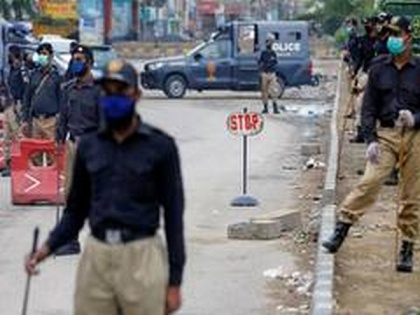Women, children suffer most as conflict hampers health services in Balochistan
By ANI | Published: January 31, 2021 10:59 PM2021-01-31T22:59:32+5:302021-01-31T23:10:02+5:30
The maternal and child health services in the conflict-hit parts of Balochistan are severely affected due to unavailability of staff and damage to healthcare facilities, The News International reported citing a study.

Women, children suffer most as conflict hampers health services in Balochistan
The maternal and child health services in the conflict-hit parts of Balochistan are severely affected due to unavailability of staff and damage to healthcare facilities, The News International reported citing a study.
The study revealing the healthcare in Pakistan's violence-affected areas has been published in BioMed Central's Conflict and Health journal.
It was conducted by researchers at the Aga Khan University (AKU) and the Centre for Global Child Health at The Hospital for Sick Children in Toronto, Canada, in two areas of Pakistan, Balochistan with a specific focus on the Makran belt that includes the districts of Gwadar, Keich and Panjgur and Federally-Administered Tribal Areas (FATA) due to the chronic nature of conflict in these areas, The News International reported.
The study consisted of a qualitative and quantitative analysis of the provision of reproductive, maternal, newborn, child and adolescent health and nutrition services (RMNCAH&N) comparing coverage in districts facing minimal, moderate and severe levels of conflict.
Researchers found significantly lower levels of contraceptive use, facility delivery, exclusive breastfeeding, Bacillus Calmette-Guerin (BCG) vaccinations, and care seeking for acute respiratory infections in Balochistan's districts severely hit by violence when compared to those areas with minimal conflict.
There was no significant difference in coverage levels between moderate and severe conflict areas. A similar quantitative assessment of coverage levels in FATA was not possible due to a lack of reliable quantitative data, The News International reported.
According to the researchers, the roadblocks and curfews in conflict-hit areas further exacerbated supply chain challenges and compromised healthcare by restricting the availability of essential medicines and commodities.
The study also found incidents of harassment, target killings, security threats and kidnappings of the health workforce, specifically polio workers, in conflict-hit areas. Stringent government regulations on NGOs working in FATA and Balochistan were also impeding efforts to expand access to healthcare.
"Pakistan must develop customised strategies to promote women and child health services in conflict-hit areas," The News International quoted AKU's Dr Jai Das, the lead author of the case study as saying.
However, AKU researchers Zahra Ali Padh, Sultana Jabeen, Arjumand Rizvi, Uzair Ansari, Malika Fatima, Ghulam Akbar, Wardah Ahmed and Zulfiqar A Bhutta are co-authors of the paper.
( With inputs from ANI )
Disclaimer: This post has been auto-published from an agency feed without any modifications to the text and has not been reviewed by an editor
Open in app